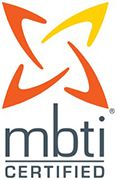Independence is part of the self-expression building block of emotional intelligence, along with emotional expression and assertiveness. I covered emotional expression in my last post and my next post will be on assertiveness.
What is Independence?
Are you self-directed and self-controlled? Are you free of emotional dependency?
Independence is the ability to make decisions on your own. It is taking care of your daily tasks as well as the important decisions in your life with confidence in yourself. It means taking charge of your own life, being yourself and looking for your own direction, acknowledging that others may disagree but knowing that you’re making the right decisions for yourself.
What It Is Not
Independence is not ignoring or dismissing other’s opinions. Seeking and considering other people’s opinions before making your own is actually a good reality testing practice and is not a sign of dependency. Independence is not being selfish or egocentric either. It is choosing what is right for you while being considerate and respectful of others.
If You Have It
If you have a good level of independence you are confortable planning, making decisions and being yourself. You’re aware that independence involves a degree of risk and that sometimes you may do or say the wrong thing. But you’re learning from these situations, forgiving yourself and moving on. You’re also aware that others may disagree with you and you’re prepared to deal with it acknowledging that different people have different opinions.
If You Don’t
If your level of independence is on the low side it may be hard for you to make decisions on your own. You may be easily influenced by others or may often need reassurance and acceptance. As a result you may be indecisive or uncertain of your own ideas. You may seem clingy or needy.
Try it!
The urge to turn to others for help may stem from negative self-talk. Dependent people have various fears: fear of making mistakes, fear of disapproval or fear of looking foolish so they turn to others for reassurance.
Here is an exercise to help you develop your awareness and your independence.
For a week and at the end of each day, think about a dependent behavior you had and write down the self-talk that undermined your ability to take care of the situation on your own. Was that self-talk irrational and negative? Did it feed your fears of failure or disapproval even though you had the skills and competencies to make the decision?
Developing awareness about your negative self-talk will help you identify it and keep it under control. Next time it occurs, stay aware of it and refrain from turning automatically to others; then deliberately switch to a more rational thinking and analysis of the decision you have to make using your skills and competencies. This will give you a chance to make your own decision!






























